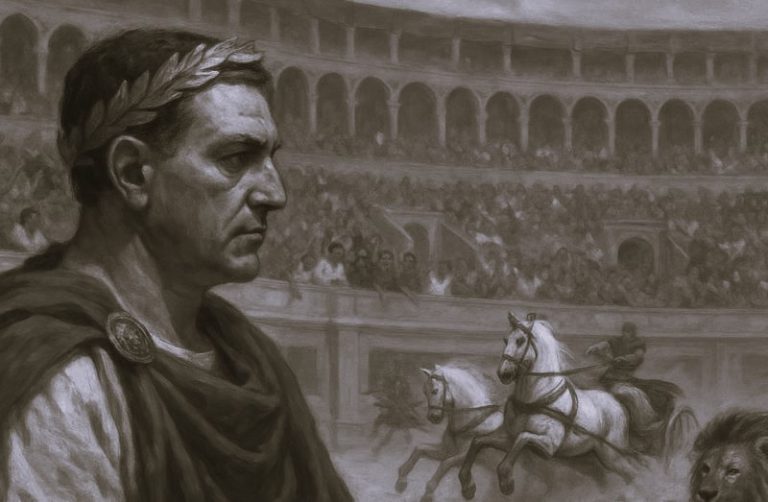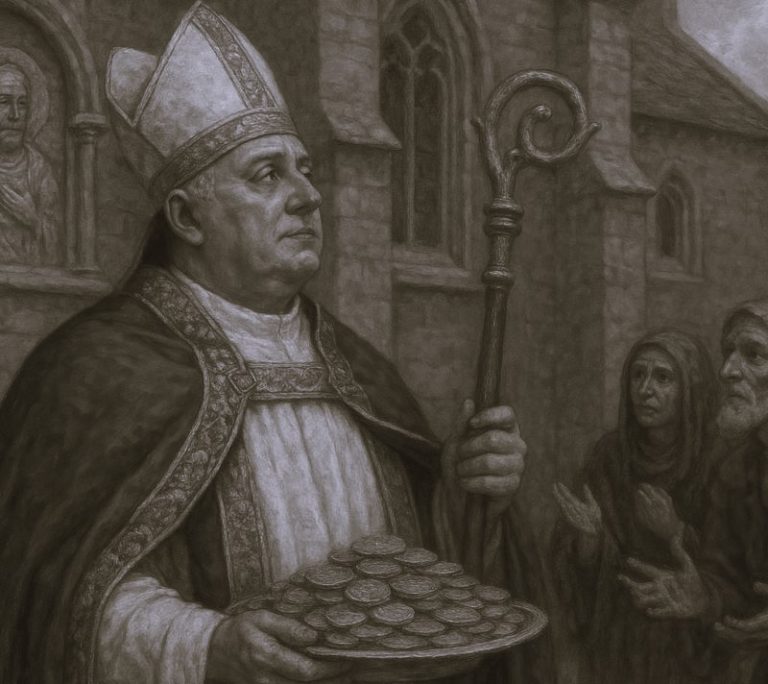


By Dr. Stephen M. Klugewicz
Historian
As Benjamin Franklin left Philadelphia’s Convention Hall in September 1787, upon the completion of the work of the Framers of the Constitution, a woman approached him and asked the old sage of the Revolution what the delegates had created. Franklin responded, “A republic, Madame, if you can keep it.” The woman’s reaction to Franklin’s reply is left unrecorded by history,but she might well have asked Franklin for a more detailed answer. Though the word “republic” was common currency in America at the time, the meaning of the term was imprecise, encompassing various and diverse forms of government.
Broadly, a republic meant a country not governed by a king. The root of the word is the Latin, res publica, meaning “the public things.” “The word republic,” Thomas Paine wrote, “means the public good, or the good of the whole, in contradistinction to the despotic form, which makes the good of the sovereign, or of one man, the only object of the government.” In a republic, the people are sovereign, delegating certain powers to the government whose duty is to look to the general welfare of society. That citizens of a republic ought to place the common good before individual self-interest was a key assumption among Americans of the eighteenth century. “Every man in a republic,” proclaimed Benjamin Rush, “is public property. His time and talents—his youth—his manhood—his old age, nay more, life, all belong to his country.”
Republicanism was not an American invention. In shaping their governments, Americans looked to history, first to the ancient world, and specifically to the Israel of the Old Testament, the Roman republic, and the Greek city-states. New Englanders in particular often cited the ancient state of Israel as the world’s first experiment in republican government and sometimes drew a parallel between the Twelve Tribes of Israel and the thirteen American states. In 1788, while ratification of the Constitution was being debated, one Yankee preacher gave a sermon entitled, “The Republic of the Israelites an Example to the American States.” Indeed, the Bible was cited by American authors in the eighteenth century more often than any other single source.

Americans not only knew their Bible, but also the history of the Greeks and Romans. The elite class mastered ancient languages and literature, a requirement of colleges at the time. To these men of the eighteenth century,ancient languages were not dead, nor were ancient events distant;rather,the worlds of Pericles and Polybius, Sallust and Cicero were vibrant and near. The relatively minor advancements in technology across 2,000years—people still traveled by horse and sailing ship—served to reinforce the bond eighteenth-century Americans felt with the ancients.
Like the Greeks and Romans of antiquity,Americans believed that government must concern itself with the character of its citizenry. Indeed, virtue was “the Soul of a republican Government,”as Samuel Adams put it. Virtue had two connotations, one secular and the other sacred.The root of the word was the Latin, vir, meaning “man,” and indeed republican virtue often referred to the display of such “manly” traits as courage and self-sacrifice for the common good. These qualities were deemed essential for a republic’s survival. “A popular government,” Patrick Henry proclaimed,“cannot flourish without virtue in the people.” But virtue could also mean the traditional Judeo-Christian virtues, and many Americans feared that God would punish the entire nation for the sins of its people. “Without morals,” Charles Carroll proclaimed, “a republic cannot subsist any length of time.” New Englanders in particular sought to have society’s institutions—government and schools as well as churches—inculcate such qualities as industry, frugality, temperance, and chastity in the citizenry. The Massachusetts Constitution of 1780, for example, provided for “public instructions in piety, religion, and morality.”
The second ingredient of a good republic was a well-constructed government with good institutions. “If the foundation is badly laid,” George Washington said of the American government, “the superstructure must be bad.” Americans adhered to a modified version of the idea of “mixed” government, advocated by the Greek thinker Polybius and later republican theorists. A mixed republic combined the three basic parts of society—monarchy (the one ruler), aristocracy (the rich few), and democracy (the people)—in a proper formula so that no one part could tyrannize the others. But Americans believed that the people of a republic were sovereign, so they sought to create institutions that approximated the monarchical and aristocratic elements of society. The Framers of the Constitution did just this by fashioning a single executive and a Senate once removed from the people. The problem, as John Adams pointed out in his Thoughts on Government, was that “the possible combinations of the powers of society are capable of innumerable variations.”
Americans had every reason to be pessimistic about their experiment in republicanism. History taught that republics were inherently unstable and vulnerable to decay. The Roman republic and the city-state of Athens, for instance, had succumbed to the temptations of empire and lost their liberty. The histories of the Florentine and Venetian republics of Renaissance Italy too had been glorious but short-lived. Theorists from the ancient Greek thinker Polybius to the seventeenth-century English radical Algernon Sidney warned that republics suffer from particular dangers that monarchies and despotisms do not. Republics were assumed to burn brightly but briefly because of their inherent instability. One element of society always usurped power and established a tyranny.
The great danger to republics, it was generally believed, stemmed from corruption, which, like virtue, had both a religious and a worldly meaning. Corruption referred, first, to the prevalence of immorality among the people. “Liberty,” Samuel Adams asserted, “will not long survive the total Extinction of Morals.”
“If the Morals of the people” were neglected, Elbridge Gerry cautioned during the crisis with England, American independence would not produce liberty but “a Slavery, far exceeding that of every other Nation.”
This kind of corruption most often resulted from avarice, the greed for material wealth. Several American colonial legislatures therefore passed sumptuary laws, which prohibited ostentatious displays of wealth. “Luxury…leads to corruption,” a South Carolinian declared during the Revolutionary era, “and whoever encourages great luxury in a free state must be a bad citizen.”Another writer warned of the “ill effect of superfluous riches” on republican society. Avarice was seen as a “feminine” weakness; the lust for wealth rotted away “masculine” virtues. John Adams bemoaned “vanities, levities, and fopperies,which are real antidotes to all great, manly, and warlike virtues.”

The second meaning of corruption referred to placing private interest above the common good. This temptation plagued public officials most of all, who had ample opportunity to misappropriate public funds and to expand their power. “Government was instituted for the general good,” Charles Carroll wrote, “but officers instrusted with its powers have most commonly perverted them to the selfish views of avarice and ambition.” Increasingly in the eighteenth century, Americans came to see government itself as the primary source of corruption.
Fear of government’s tendency to expand its power at the expense of the people’s liberty was part of Americans’ English political heritage. They imbibed the writings of late-seventeenth-century English radicals and eighteenth-century “country”politicians who were suspicious of the power of British officials (the “court”). Government corruption was manifested in patronage (the awarding of political office to friends), faction (the formation of parties whose interests were opposed to the common good), standing (permanent) armies,established churches, and the promotion of an elite class. Power, these country writers argued, was possessed by the government; it was aggressive and expansionist. Liberty was the property of the governed; it was sacred and delicate. The history of liberty in the world was a history of defeat by the forces of tyranny.
Though the history of republicanism was a dismal one, the lessons of history as well as their own colonial experience convinced the American Founders that they possessed sufficient information on which to base a new science of politics. “Experience must be our only guide,” John Dickinson proclaimed at the Philadelphia Convention; “reason may mislead us.” The Framers of the United States Constitution all had experience as public servants, and it must be remembered that the document they produced did not spring forth as something entirely new in the American experience. Rather, the Founders had learned much from the operation of their colonial charters, state constitutions, and the Articles of Confederation.
At Philadelphia, the Founders focused on the proper construction of the machinery of government as the key to the building of a stable republic. The Constitution makes no mention of the need for virtue among the people, nor does it make broad appeals for self-sacrifice on behalf of the common good. It is a hard-headed document forged by practical men who had too often witnessed avarice and ambition among their peers in the statehouse, the courtroom, and the counting house. A good constitution, the Founders held, was the key to good government. Corruption and decay could be overcome primarily through the creation of a written constitution—something England lacked—that carefully detailed a system in which powers were separated and set in opposition to each other so that none could dominate the others.
James Madison, often called “The Father of the Constitution” because of the great influence of his ideas at Philadelphia, proposed to arrange the machinery of government in such a fashion as not to make virtue or “better motives” critical to the advancement of the common good. Acknowledging in The Federalist Papers that “enlightened statesmen will not always be at the helm,” Madison believed that the separate powers of government—legislative, executive, and judicial—must be set in opposition to one another, so that “ambition must be made to counteract ambition.”
“In framing a government which is to be administered by men over men,” Madison asserted, “the great difficulty lies in this: you must first enable the government to control the governed; and in the next place oblige it to control itself.”
James Wilson, representing Pennsylvania at the Philadelphia Convention, declared that the Constitution’s separation of powers and checks and balances made “it advantageous even for badmen to act for the public good.” This is not to say that the delegates believed that the republic could survive if corruption vanquished virtue in society. Madison himself emphasized the importance of republican virtue when defending the new government in The Federalist Papers. But the Framers agreed with Madison that men were not angels, and most were satisfied that the Constitution, as George Washington put it, “is provided with more checks and barriers against the introduction of Tyranny. . . than any Government hitherto instituted among mortals.”

The question remained, however, whether one part of society would come to dominate. No matter how perfect the design, the danger remained that a faction would amass enough political power to takeaway the liberty of others. To combat this problem, classical republican theory called for creating a uniformity of opinion among the republican citizenry so that factions could not develop. The ancient Greek city-states, for example, feared anything that caused differentiation among citizens, including commerce, which tended to create inequalities of wealth and opposing interests. In contrast, Madison and the Founders recognized that factionalism would be inherent in a commercial republic that protected freedom of religion, speech, press, and assembly. They sought only to mediate the deleterious effects of faction.
Republics also were traditionally thought to be durable only when a small amount of territory was involved. The Greek city-states, the Roman republic, the Italian republics, and the American states all encompassed relatively small areas. When the Roman republic expanded in its quest for empire, tyranny was the result. Madison turned this traditional thinking on its head in The Federalist Papers, arguing that a large republic was more conducive to liberty because it encompassed so many interests that no single one, or combination of several, could gain control of the government.
Not all Americans accepted the Madisonian solution. Agrarians, such as Thomas Jefferson, were uncomfortable with the idea of a commercial republic centered on industry and sought to perpetuate a nation of independent farmers through the expansion of the frontier. Though uneasy about the “energetic government” created by the Constitution, Jefferson endorsed the Framers’ work after a bill of rights was added to the document. “Old republicans” like Samuel Adams and George Mason opposed the Constitution, even after the addition of a bill of rights, fearing that the power granted to the central government was too great and wistfully looking back to the Revolutionary era when virtue, not ambition, was the animating principle of government. But in1789, as the new government went into operation, most Americans shared the optimism of Benjamin Franklin, who had decided at the conclusion of the Philadelphia Convention that the sun carved into the back of the chair used by George Washington was a rising—not a setting—sun, and thereby indicative of the bright prospects of the nation.
“We have it in our power to begin the world over again,” Thomas Paine had written in 1776, during the heady days of American independence.And indeed the American Founders in 1787 were keenly aware that they possessed a rare opportunity. Like the legendary Lycurgus of Ancient Greece,they were to be the supreme lawgivers of a new republic, a novus ordo seclorum or new order of the ages. The American Founders were aware that the eyes of the world and future generations were upon them, and they were determined to build an eternal republic founded in liberty, a shining city upon a hill, as an example to all nations for all time.
Further Reading
- Adair, Douglass. Fame and the Founding Fathers: Essays by Douglass Adair. Indianapolis: Liberty Fund, 1998.
- Bailyn, Bernard. The Origins of American Politics. New York: Vintage Books, 1968.
- McDonald, Forrest. Novus Ordo Seclorum: The Intellectual Origins of the Constitution. Lawrence: University Press of Kansas, 1985.
- Pocock, J.G.A. The Machiavellian Moment: Florentine Political Thought and the Atlantic Republican Tradition. Princeton: Princeton University Press, 1975.
- Rahe, Paul A. Republics Ancient and Modern, 3 vols. Chapel Hill: The University of North Carolina Press, 1994.
- Wood, Gordon. The Creation of the American Republic. Chapel Hill: The University of North Carolina Press, 1969.
Originally published by The Bill of Rights Institute, open access, republished under terms of fair use for educational, non-commercial purposes.






